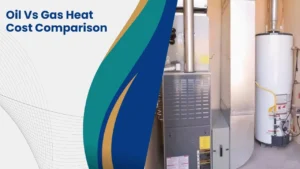When the cold weather hits, a functioning furnace becomes a necessity to keep your home warm and comfortable. However, like any appliance, a furnace will eventually experience wear and tear and require either repair or replacement. Deciding whether to repair or replace your furnace can be a tough decision, as it depends on several factors.
In this article, we’ll explore those factors and help you determine whether you should repair or Replace Your Furnace.
1. Age of the Furnace:
The age of the furnace is the first thing you should consider when deciding whether to repair or replace it. Typically, the average lifespan of a furnace is 15-20 years, depending on the make and model. If your furnace is approaching or surpassing this age range, it may be time to consider replacement rather than repair. Repairs can become increasingly frequent and expensive as a furnace ages, and you’ll likely save money in the long run by replacing it with a newer, more energy-efficient model.
2. Frequency and Cost of Repairs
If your furnace is still relatively young, the frequency and cost of repairs are critical factors in deciding whether to repair or replace it. A general rule of thumb is that if the repair costs are more than 50% of the cost of a new furnace, replacement is the better option. Additionally, if you find yourself calling for repairs more than once a year, it may be time to consider replacing your furnace, as the costs can quickly add up.
3. Energy Efficiency
Another factor to consider is the energy efficiency of your furnace. Older furnaces are generally less efficient than newer models, which can result in higher energy bills. If your furnace is more than 15 years old, it may be time to consider a replacement with a more energy-efficient model. These newer furnaces often have a higher AFUE (Annual Fuel Utilization Efficiency) rating, meaning they use less energy to generate the same amount of heat. Investing in a more energy-efficient furnace can save you money in the long run on energy bills and potentially even qualify you for tax credits.
Also check: Humidifier Maintenance Checklist
4. Comfort
The comfort level of your home is also a factor to consider when deciding whether to repair or replace your furnace. If you’re experiencing inconsistent heating, strange noises, or uneven temperature distribution, it may be time to replace your furnace. These issues can indicate that your furnace is struggling to keep up with the demands of your home, and a replacement may be necessary to ensure that your home is comfortable throughout the winter months.
5. Safety
Lastly, safety is a crucial factor to consider when deciding whether to repair or replace your furnace. If you notice any signs of a gas leak, such as a strong odor or hissing sound, turn off the furnace immediately and call a professional for help. Other signs of a potential safety issue include a cracked heat exchanger, which can lead to carbon monoxide leaks, or a malfunctioning pilot light. If you suspect a safety issue with your furnace, it’s important to replace it immediately to protect the safety of your home and family.
Conclusion
In conclusion, deciding whether to repair or replace your furnace depends on several factors. The age of the furnace, frequency and cost of repairs, energy efficiency, comfort, and safety are all critical factors to consider when making this decision. If your furnace is nearing the end of its lifespan or requiring frequent and expensive repairs, replacing it with a newer, more energy-efficient model may be the best option. Additionally, if you’re experiencing inconsistent heating or safety concerns, it’s important to replace your furnace immediately to protect your home and family. Consult with a licensed HVAC professional to help you make the best decision for your specific situation.





